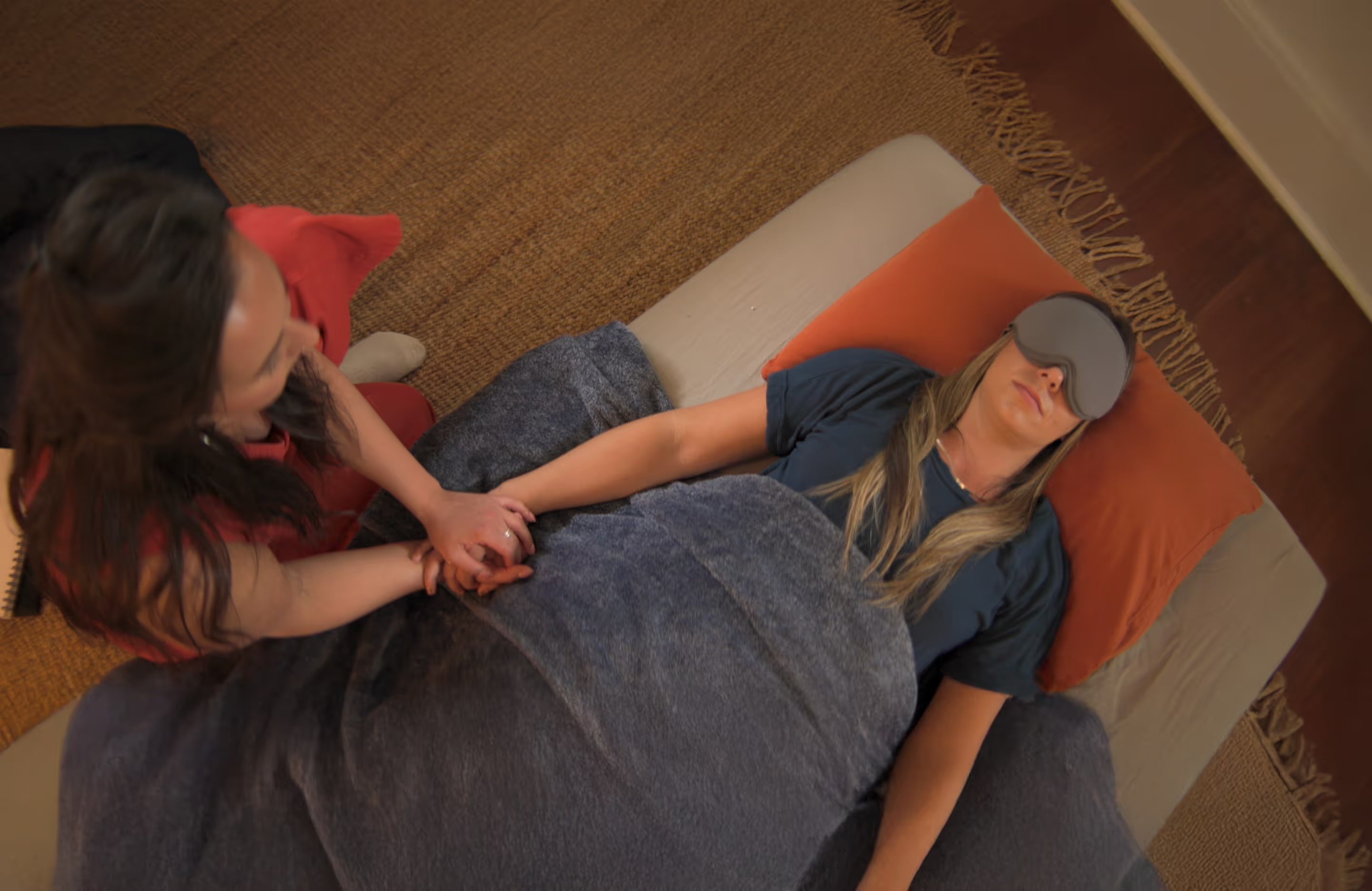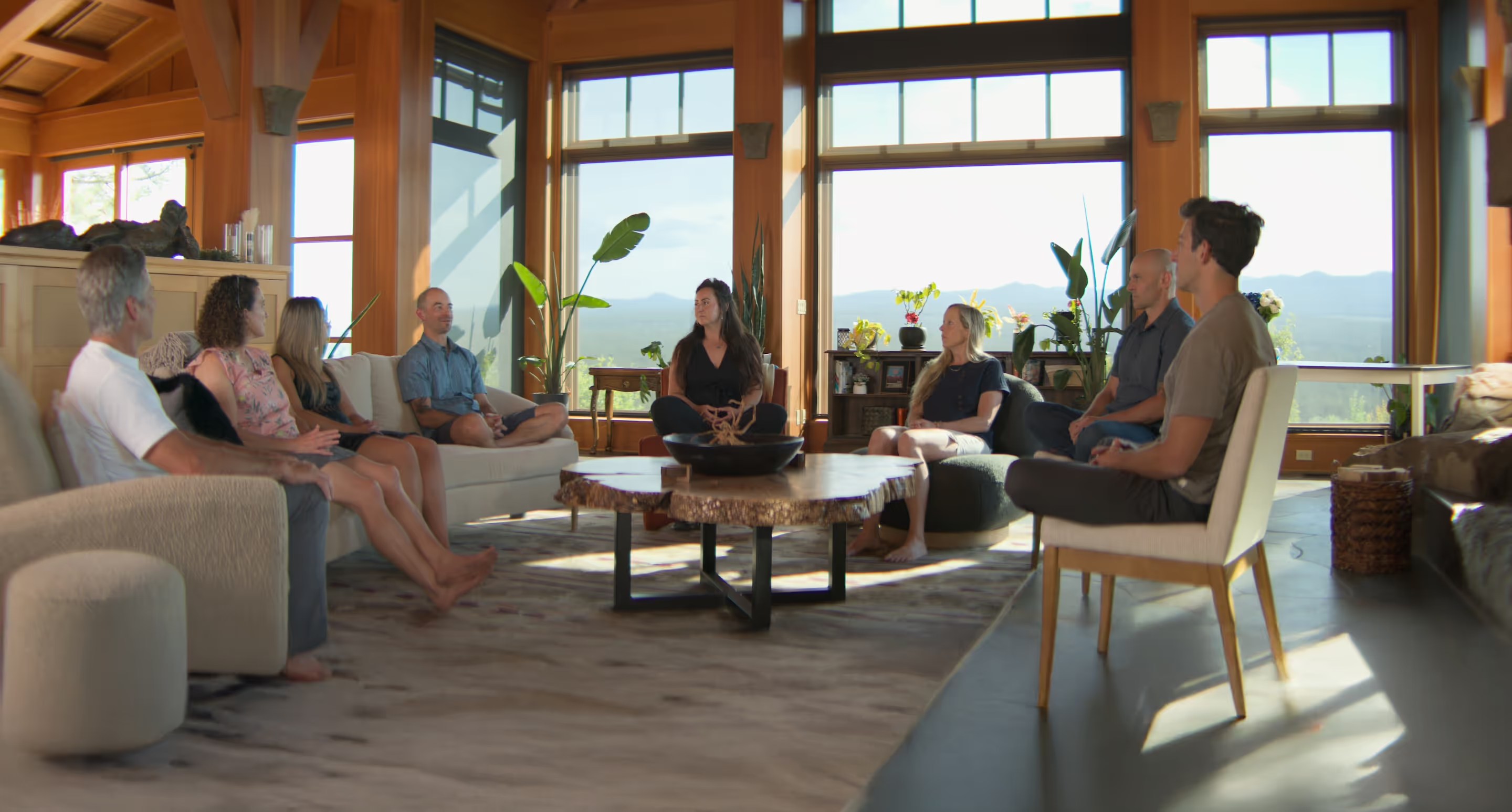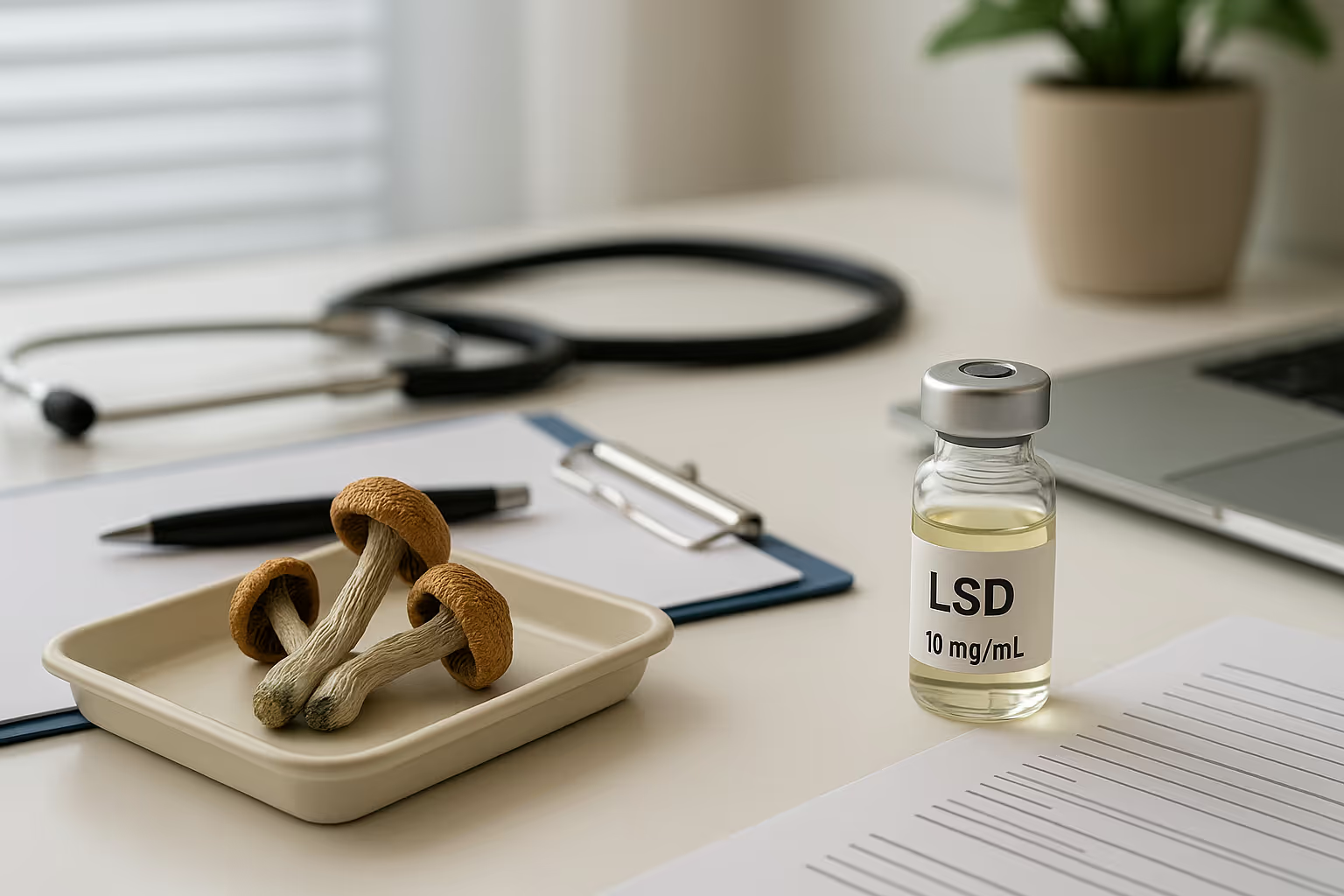Why Psilocybin Was Criminalized: A Scientific, Societal, and Political Timeline

Why was psilocybin, once used in spiritual ceremonies and promising medical research, made illegal in the United States? This comprehensive analysis examines the web of historical events, political strategies, cultural fears, and scientific contradictions that led to psilocybin's criminalization. By understanding this timeline, we may see how political agendas and moral panic overpowered legitimate scientific inquiry, creating barriers that persist today.
The story of psilocybin's criminalization reveals broader patterns in how society responds to consciousness-altering substances, particularly when they challenge established power structures and cultural norms. From ancient ceremonial use to modern therapeutic applications, psilocybin's journey through legal frameworks reflects our evolving understanding of mental health, personal freedom, and the role of government in regulating consciousness.
Quick Timeline of Psilocybin's Legal History
- Pre-1500s: Indigenous Mesoamerican cultures use psilocybin mushrooms in religious ceremonies
- 1955: R. Gordon Wasson's Life magazine article introduces Western world to psilocybin
- 1958: Albert Hofmann isolates psilocybin at Sandoz Laboratories
- 1960-1963: Harvard Psilocybin Project begins under Timothy Leary and Richard Alpert
- 1965: U.S. Drug Abuse Control Amendments begin federal regulation of psychedelics
- 1968: Possession of psilocybin becomes illegal in the United States
- 1970: Controlled Substances Act places psilocybin in Schedule I
- 1971: UN Convention on Psychotropic Substances creates global framework for criminalization
- 1990s: First modern clinical studies resume under strict DEA oversight
- 2018: FDA grants Breakthrough Therapy designation for psilocybin-assisted therapy
- 2020-Present: Oregon legalizes certain therapeutic use (2020), Colorado decriminalizes and begins regulation (2022), cities like Denver, Oakland, and Seattle enact local reforms, and New Mexico pursues legislation.
Ancient and Indigenous Use: Sacred Medicine
Long before Western science discovered psilocybin, indigenous cultures of Mesoamerica had developed sophisticated ceremonial practices around these mushrooms. The Aztecs called them teonanácatl, or "flesh of the gods," reflecting their profound spiritual significance. Archaeological evidence suggests the Maya, Mixtec, Zapotec, and other civilizations used psilocybin mushrooms for divination, healing, and communication with the spirit world.
Amongst other concepts, these practices emphasized set and setting: principles that modern psychedelic therapy has rediscovered as crucial for safe and effective treatment. Indigenous curanderos (healers) understood that psilocybin required careful preparation, appropriate context, and integration support. The mushrooms were not recreational substances but sacred tools for healing trauma, resolving conflicts, and gaining spiritual insight.
Spanish colonizers actively suppressed these practices, viewing them as pagan rituals that threatened Christian conversion efforts. Cultural repression drove indigenous mushroom ceremonies underground, where they survived through isolated communities for centuries. However, this would not be the last time that a disconnect between indigenous wisdom and Western scientific understanding would contribute to policies of criminalization and punishment.
Modern Rediscovery: Science Meets Sensationalism (1950s)
The Western rediscovery of psilocybin began in 1955 when R. Gordon Wasson, a Wall Street banker and amateur mycologist, participated in a Mazatec mushroom ceremony in Oaxaca, Mexico. His subsequent article in Life magazine, "Seeking the Magic Mushroom," introduced millions of Americans to psilocybin's consciousness-altering effects. However, Wasson's sensationalized account emphasized the exotic and mysterious aspects of the experience while largely ignoring the sophisticated indigenous context.
The article's impact was immediate and far-reaching. Swiss chemist Albert Hofmann, who had previously discovered LSD, obtained mushroom samples and successfully isolated psilocybin at Sandoz Laboratories in 1958. This breakthrough enabled controlled scientific study and pharmaceutical development. Sandoz began producing pure psilocybin for research purposes, distributing it to universities and medical institutions worldwide.
Early clinical studies in the late 1950s and early 1960s showed remarkable promise. Researchers at institutions like Harvard, Yale, and Johns Hopkins found psilocybin effective in treating alcoholism, depression, and end-of-life anxiety in terminal cancer patients. The National Institute of Mental Health (NIMH) and other government agencies initially supported this research, recognizing psilocybin's therapeutic potential.
Crucial Finding: These early studies consistently demonstrated that psilocybin was non-addictive, had low toxicity, and produced lasting positive changes in many patients. Unexpectedly, psilocybin’s safety profile was significantly better than many approved psychiatric medications of the time.
The Harvard Psilocybin Project and Growing Controversy
Timothy Leary's involvement marked a turning point in psilocybin's public perception. Initially a respected Harvard psychology professor, Leary began the Harvard Psilocybin Project in 1960 with colleague Richard Alpert (later known as Ram Dass). Their research aimed to study psilocybin's effects on personality and behavior, conducting experiments with graduate students, prisoners, and volunteers.
The project's most famous study, conducted at Concord Prison, claimed to reduce recidivism rates among inmates who received psilocybin therapy. However, methodological flaws and exaggerated claims about the results would later discredit much of their work. More problematically, Leary began advocating for widespread use of psychedelics outside clinical settings, arguing that consciousness expansion was every person's right.
Leary's transformation from scientist to counterculture guru alarmed academic and government officials. His famous slogan, "Turn on, tune in, drop out," became synonymous with a 1960s rebellion against authority. Harvard dismissed Leary and Alpert in 1963, but their influence on the emerging counterculture continued to grow.
The association between psilocybin and anti-establishment movements drew inevitable political backlash. What began as promising medical research became entangled with generational conflict, anti-war protests, and challenges to authority.
Counterculture Panic and Political Backlash (1960s)
The 1960s counterculture movement embraced psilocybin as a tool for personal liberation and social change. Young Americans, disillusioned by the Vietnam War and rigid social conventions, saw psychedelics as pathways to authentic experience and spiritual awakening. This cultural shift evoked concern from conservative groups who viewed psychedelic use as a direct threat to social order.
Media coverage amplified these fears through sensationalized reporting that emphasized negative outcomes while ignoring positive research findings. Newspapers ran headlines about "mind-bending drugs" and "chemical warfare on the brain," creating public panic around substances that clinical studies suggested were relatively safe when used responsibly.
The political implications were especially enormous. Psychedelics became associated with anti-war activism, civil rights movements, and challenges to traditional authority. Government officials recognized that criminalizing these substances could help suppress broader social movements while appearing to protect public health.
Conservative politicians and law enforcement agencies portrayed psychedelic users as dangerous criminals who threatened American values. Though many users were peaceful individuals seeking personal growth or therapeutic benefit, such subtleties were lost in the rhetoric of social panic and control.
Legislation and the War on Drugs (1965–1971)
1965: Drug Abuse Control Amendments
The Drug Abuse Control Amendments of 1965 marked the federal government's first major move to regulate psychedelic substances. These amendments transferred authority over psychedelics from the FDA's drug approval process to law enforcement agencies, fundamentally changing how these substances were viewed. Potential medicines became potential criminal contraband.
The legislation was rushed through Congress with minimal scientific input, relying instead on moral arguments and public safety concerns. Lawmakers largely ignored the growing body of research suggesting therapeutic benefits, focusing instead on anecdotal reports of adverse reactions and cultural fears about social disruption.
1968: Possession Becomes Illegal
By 1968, simple possession of psilocybin became a federal crime, ending the era when researchers, therapists, and individuals could legally explore its effects. This criminalization immediately halted most legitimate research and drove remaining use underground, where safety protocols and quality control became impossible to maintain.
The timing in question was particularly significant. Just as clinical studies were beginning to demonstrate psilocybin's efficacy for treating various mental health conditions, legal access was eliminated. Researchers lost funding, institutions abandoned projects, and promising therapeutic applications were abandoned.
1970: The Controlled Substances Act
President Nixon's Controlled Substances Act (CSA) of 1970 created the modern framework for drug scheduling and placed psilocybin in Schedule I, the most restrictive category. Schedule I classification dictates that a substance possesses:
- High potential for abuse
- No currently accepted medical use in treatment in the United States
- Lack of accepted safety for use under medical supervision
The Scientific Contradiction: At the time of scheduling, existing research directly contradicted all three criteria. Studies showed psilocybin had low abuse potential, demonstrated medical applications, and could be used safely under proper supervision.
The CSA's scheduling decisions were made by political appointees rather than medical experts, reflecting the law's primary goal of social control rather than public health protection. The Act created a regulatory framework so restrictive that meaningful research became virtually impossible for decades.
1971: International Criminalization
The UN Convention on Psychotropic Substances of 1971 extended psilocybin prohibition globally, pressuring member nations to adopt similar restrictions. This international treaty effectively ended legal psilocybin research worldwide, creating a global consensus that these substances were too dangerous for legitimate use.
The treaty's language reflected American drug war rhetoric rather than scientific evidence, demonstrating how domestic political concerns could shape international policy. Countries with different cultural relationships to psychedelics found themselves obligated to criminalize substances that had never posed problems in their societies.
The Real Motives: Fear, Control, and Ideology
While public safety was the official justification for criminalization, historical evidence suggests the real motives were far more complex and troubling. Internal government documents and later testimony from key figures reveal that psilocybin's association with counterculture movements made it a target for political suppression.
John Ehrlichman, President Nixon's domestic policy advisor, later admitted that the War on Drugs was designed to disrupt anti-war and civil rights movements. In a 1994 interview, he revealed: "We knew we couldn't make it illegal to be either against the war or black, but by getting the public to associate the hippies with marijuana and blacks with heroin, and then criminalizing both heavily, we could disrupt those communities."
The criminalization of psilocybin served multiple political purposes: it provided a legal basis for prosecuting counterculture participants, reinforced traditional authority structures, and allowed politicians to appear tough on crime while avoiding complex social issues. The fact that scientific evidence contradicted the criminalization narrative was largely irrelevant to these political calculations.
Cultural historian David Courtwright argues that the War on Drugs became a tool for managing social dissent rather than addressing genuine public health concerns. The targeting of substances associated with specific subcultures reflected broader anxieties about social change and generational conflict.
The Fallout: Scientific Silence and Stigma
The criminalization of psilocybin created a "dark age" of psychedelic research that lasted over two decades. The Schedule I classification made research extremely difficult, requiring multiple federal permits, DEA oversight, and specialized security measures that most institutions couldn't afford or justify.
Government funding for psychedelic research disappeared entirely, while universities and medical schools avoided the field to protect their reputations and federal funding for other projects. Young researchers were actively discouraged from studying psychedelics, creating a generation gap in scientific expertise that persists today.
The impact surpassed academia alone. Medical professionals lost access to potentially valuable treatments, patients with treatment-resistant conditions had fewer options, and public understanding of psychedelics became dominated by misinformation and stigma rather than scientific facts.
Lasting Consequences:
- Lost Research Opportunities: Decades of potential discoveries in neuroscience, psychology, and psychiatry were abandoned
- Therapeutic Stagnation: Mental health treatment remained limited to conventional approaches while promising alternatives were prohibited
- Cultural Misunderstanding: Public perception of psychedelics became shaped by propaganda rather than evidence
- Legal Barriers: Complex regulatory frameworks made resuming research expensive and time-consuming
- Professional Stigma: Careers in psychedelic research remained risky and marginalized
The Slow Shift: Resurgence of Psychedelic Science
The renaissance of psychedelic research began quietly in the 1990s, led by determined scientists willing to navigate the regulatory maze. Dr. Rick Strassman's DMT studies at the University of New Mexico in the early 1990s demonstrated that psychedelic research could meet modern scientific standards while complying with federal regulations.
The formation of organizations like the Multidisciplinary Association for Psychedelic Studies (MAPS) and the Heffter Research Institute provided crucial support for researchers, offering funding, regulatory guidance, and advocacy for policy reform. These organizations helped legitimize psychedelic research and rebuild scientific credibility.
Key developments in the modern era include:
Breakthrough Clinical Studies: Researchers at Johns Hopkins, NYU, Imperial College London, and other prestigious institutions have published groundbreaking studies on psilocybin's effectiveness for treating depression, PTSD, addiction, and end-of-life anxiety. These studies use rigorous methodology, proper controls, and FDA-approved protocols.
Regulatory Recognition: The FDA's 2018 designation of psilocybin as a "breakthrough therapy" for treatment-resistant depression marked a significant shift in official attitudes. This designation expedites the approval process and acknowledges psilocybin's therapeutic potential.
State-Level Reform: Oregon became the first state to legalize psilocybin therapy in 2020, while numerous cities and counties have decriminalized possession and use. Colorado, California, and other states are considering similar measures.
Investment and Innovation: Pharmaceutical companies and biotech startups are investing hundreds of millions in psychedelic research and development, creating economic incentives for continued progress.
Professional Integration: Medical societies, universities, and healthcare systems are beginning to incorporate psychedelic therapy training and services, suggesting mainstream acceptance may be approaching.
Current Status and Future Outlook
Today, psilocybin remains federally illegal as a Schedule I substance, but the landscape is changing rapidly. Clinical trials are expanding, state laws are evolving, and public opinion is shifting toward acceptance of medical applications.
The contradiction between federal prohibition and growing scientific evidence has created tension that may ultimately force policy reform. As more states implement therapeutic programs and clinical trials demonstrate safety and efficacy, federal scheduling may become untenable.
However, significant challenges remain. Regulatory frameworks are complex and expensive, professional training is limited, and public stigma persists despite growing awareness. The transition from prohibition to acceptance will likely be gradual, uneven, and politically contentious.
The lessons of psilocybin's criminalization remain relevant as society grapples with new consciousness-altering substances and technologies. The importance of evidence-based policy, the dangers of moral panic, and the need for democratic input in regulatory decisions are as crucial today as they were in the 1960s.
Frequently Asked Questions (FAQ)
Is psilocybin still federally illegal in the United States? Yes. Psilocybin remains a Schedule I controlled substance under federal law, though some states have implemented their own reform measures.
Was psilocybin ever legal for medical use in the U.S.? From 1958-1968, psilocybin was available for legitimate research and medical use before federal criminalization began.
Is psilocybin actually dangerous or addictive? Research consistently shows psilocybin has low addiction potential and relatively low toxicity compared to many legal substances.
Why was psilocybin criminalized if research showed it was safe? Criminalization was driven primarily by political and cultural factors rather than scientific evidence of harm.
What's the difference between decriminalization and legalization? Decriminalization removes criminal penalties but doesn't create legal markets, while legalization establishes regulated systems for production and distribution.
Can doctors prescribe psilocybin today? No, except in approved clinical trials or specific state programs like Oregon's therapeutic psilocybin program.
How long does it take to change drug scheduling? The federal rescheduling process typically takes years and requires extensive scientific evidence and regulatory review.
What states have reformed their psilocybin laws? Oregon has legalized therapeutic use, while dozens of cities and counties have decriminalized possession or deprioritized enforcement.
Are other countries legalizing psilocybin? Several countries including Netherlands, Portugal, and parts of Canada have more permissive policies, while others are conducting clinical trials.
Q: What does Breakthrough Therapy designation mean? It's an FDA designation that expedites the development and review of drugs that show substantial improvement over existing treatments.
Key Citations and Sources
Wasson, R. G. (1957). Seeking the Magic Mushroom. Life Magazine, 42(19), 100-120.
Hofmann, A. (1958). Psilocybin, ein psychotroper Wirkstoff aus dem mexikanischen Rauschpilz Psilocybe mexicana Heim. Experientia, 14(3), 107-109.
Leary, T., Litwin, G. H., & Metzner, R. (1963). Reactions to psilocybin administered in a supportive environment. Journal of Nervous and Mental Disease, 137(6), 561-573.
Controlled Substances Act (1970). Public Law 91-513, 84 Stat. 1236.
UN Convention on Psychotropic Substances (1971). United Nations Treaty Series, Vol. 1019, No. 14956.
Griffiths, R. R., et al. (2016). Psilocybin produces substantial and sustained decreases in depression and anxiety in patients with life-threatening cancer. Journal of Psychopharmacology, 30(12), 1181-1197.
Carhart-Harris, R. L., et al. (2018). Psilocybin for treatment-resistant depression: fMRI-measured brain mechanisms. Scientific Reports, 7(1), 13187.
Pollan, M. (2018). How to Change Your Mind: What the New Science of Psychedelics Teaches Us About Consciousness, Dying, Addiction, Depression, and Transcendence. Penguin Press.
Courtwright, D. T. (2001). Forces of Habit: Drugs and the Making of the Modern World. Harvard University Press.
Nutt, D. J., King, L. A., & Phillips, L. D. (2010). Drug harms in the UK: a multicriteria decision analysis. The Lancet, 376(9752), 1558-1565.
Johnson, M. W., Hendricks, P. S., Barrett, F. S., & Griffiths, R. R. (2019). Classic psychedelics: An integrative review of epidemiology, therapeutics, mystical experience, and brain network function. Pharmacology & Therapeutics, 197, 83-102.
Reiff, C. M., et al. (2020). Psychedelics and psychedelic-assisted psychotherapy. American Journal of Psychiatry, 177(5), 391-410.
Ehrlichman, J. (1994). Interview with Dan Baum. Harper's Magazine, April 2016.
Oregon Psilocybin Services Act (2020). Oregon Revised Statutes Chapter 475A.
FDA Breakthrough Therapy Designation (2018). COMPASS Pathways plc press release, October 23, 2018.

.svg)









.svg)